- 24,924
- 23,211
- Joined
- Feb 25, 2010
Trickle down economics working exactly as it was designed to. 

Follow along with the video below to see how to install our site as a web app on your home screen.

Note: this_feature_currently_requires_accessing_site_using_safari


Well here’s the thing with taxing the top.......... they can just make that back by cutting benefits or downsizing ........ aka trickle back up
It’s odd man. It’s like all they see is the first step and throw all logic into the wind just becuase. Money is all they haveWell you hope that an increase in taxes for the wealthy is coupled with breaks for the lower and middle class. The more money that lower/middle class people have in their pockets, the more they spend. Why do conservatives suddenly forget that a rise in consumerism almost always trickles back up to them. We don’t have to play this “choose the winner” game.
Pretty significant news if it is enacted
The new details would not only bookend a multi-year investigation by federal prosecutors into whether and how Trump associates seriously considered requests by Moscow to ease the financial measures. The new court filings could also answer a central question of the Russia investigation: What specific policy changes, if any, did the Kremlin hope to get in return from its political machinations?
“During his investigation, Mueller has shown little proclivity for chasing dead ends,” said Paul Pelletier, a former senior Department of Justice official. “His continued focus on the evidence that members of the Trump campaign discussed sanction relief with Russians shows that his evidence of a criminal violation continues to sharpen. This has to come as especially bad news for the president.”
Mueller’s interest in sanctions arose, at least in part, out of his team’s investigation into former National Security Adviser Michael Flynn. The Special Counsel’s Office noted in a court filing last week that Flynn had lied to the FBI about his conversations with Russian Ambassador Sergey Kislyak concerning U.S. sanctions. But other portions of this court filing were left redacted.
Mueller’s team is looking closely at evidence—some of it provided by witnesses—from the transition period, two individuals with knowledge of the probe said.
“Sanctions conversations that happened after November are more serious,” said Angela Stent, a former national intelligence officer for Russia under President George W. Bush. “At that point Flynn, for example, would have already known he was going to be part of the administration and those conversations would have included plans for what might happen [next].”
And Flynn wasn’t the only figure talking sanctions during that transition period, three sources with knowledge of the probe said. Several individuals in Trump’s inner circle were developing their own plans to put pressure on other parts of the government to roll back the sanctions, which have cost the Russian economy more than $100 billion, according to Kremlin estimates.
It’s still unclear if Trump adviser Erik Prince and Kirill Dmitriev, the head of one of Russia’s sovereign wealth funds, spoke about sanctions in their now-infamous meeting in the Seychelles held during the last days of the transition. But The Daily Beast previously reported that the two spoke broadly about Russian investment opportunities in the U.S. and the potential for peace in Ukraine.
Just a week after Trump took office, Ukrainian lawmaker Andrii V. Artemenko handed Michael Cohen, then Trump’s personal lawyer, a “peace plan” that would lift sanctions. Accounts differ on how seriously the proposal was considered by the administration.
Around the same time, Trump reportedly asked staffers in the State Department to come up with a plan to roll back sanctions. But the department’s transition team was disorganized and understaffed, according to one person on the team. The request never made its way to people tasked with advising the White House on sanctions, according to two former national-security officials.
“The Russians were definitely looking to ease sanctions, or the relaxation of sanctions,” said one former Treasury official. “There was clearly a person they supported in the election and Trump clearly had a favorable view of Russia. But the transition was a mess and it took more time to get their feet under them. By the time they got their stuff together, Congress was increasing sanctions.”
The U.S. implemented sanctions on Russia in 2014 following its annexation of Crimea. Those sanctions were broadly supposed to make it more difficult for Russia to make money and to conduct business with the U.S. and its European allies. Several of Russia’s financial entities, including the Russian Direct Investment Fund, one of Moscow’s sovereign wealth funds, and VTB, one of the leading banks in the country, were put under sanctions but still allowed to transact with Americans under certain circumstances. Others, though, including top government officials like Igor Sechin, the CEO of Rosneft, the formerly state-owned Russian oil enterprise, were blacklisted.
When Trump began campaigning in 2015, the Russian sanctions had started to take a toll on local Russians. Trump, unexpectedly, vowed to roll them back. “I don’t think you’d need the sanctions,” the future president said in response to a question from Russian provocateur Maria Butina, who pleaded guilty this month to conspiracy to violate restrictions on foreign agents.
Meanwhile, Putin was in the midst of implementing measures to insulate the economy from total collapse, compliance lawyers told The Daily Beast. With the careful maneuvering of business deals, Russia continued to conduct business with the U.S. and its European allies, two former Obama officials involved in drafting the sanctions said.
But compliance lawyers said investors and U.S. businesses were wary of the legal risks of doing business with Moscow. The lifting of sanctions, lawyers told The Daily Beast, would have allowed for Russia to conduct business with American and European investors with more ease. It would have allowed international businesses and individuals to lend money to Russia as well as borrow, which the sanctions currently broadly restrict.
The topic kept coming up during the campaign. In the June 2016 meeting in Trump Tower with Russian lawyer Natalia Veselnitskaya, for example, Donald Trump Jr. reportedly suggested a review of sanctions law.
But since Trump took office, the Treasury Department has increased the number of sanctions on Russia. In April 2017, for instance, the government blacklisted another set of Russian oligarchs and government officials, many of whom have close connections to Russian President Vladimir Putin.
Congress is considering a number of pieces of legislation that would further punish Moscow for its interference in the 2016 elections.
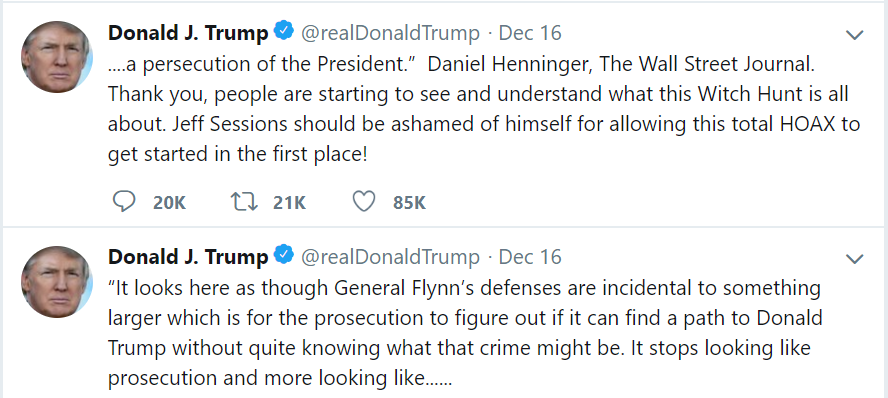
The questioning marked a dramatic beginning to what might have been an uneventful hearing.
Both prosecutors and defense attorneys had urged that Flynn face no prison time for his crime, noting that he was an early cooperator in special counsel Robert S. Mueller III’s investigation of Russian interference in the 2016 election and had provided information useful to several other ongoing probes.
But in their sentencing submission, Flynn’s attorneys suggested he might have been fooled into lying to the FBI because he had not been warned in advance that doing so is a crime. That prompted the judge to request more documents, and the special counsel’s office last week vigorously pushed back on the idea that Flynn was mistreated.
“The Court should reject the defendant’s attempt to minimize the seriousness of those false statements to the FBI,” prosecutors wrote. “Nothing about the way the interview was arranged or conducted caused the defendant to make false statements to the FBI.”
Flynn will probably make a personal plea for Sullivan to show him leniency, though he first had to convince the judge he fully he accepts responsibility for the crime to which he has pleaded guilty.
“I cannot recall an instance of a court ever accepting a guilty plea from some who did not maintain he was guilty and I do not intend to start today,” Sullivan said.
Sullivan asked defense attorney Robert Kelner if it was the defense’s contention that the FBI was legally obligated to remind Flynn that lying to the FBI is a federal crime, or that “Mr. Flynn was entrapped by the FBI.”
“No, your honor,” Kelner said.
The judge asked whether any of the FBI’s actions “raised any degree of doubt that Mr. Flynn intentionally lied to the FBI.”
“No, your honor,” Kelner said, adding that Flynn stood by his guilty plea.
The concession from Flynn and his attorney is likely to disappoint supporters, who for months have advanced the notion that Flynn was wronged. Reluctance to admit guilt, though, could have prompted the judge to tear up Flynn’s plea, or reduce the benefit he might have gotten from cooperating. Outside the court Tuesday, a small group of demonstrators carried signs that bore messages supportive of Flynn, such as “Stop the witchhunt” and “Flynn is Innocent!”
In a Tuesday morning tweet, Trump wished Flynn “good luck today in court.”
“Will be interesting to see what he has to say, despite tremendous pressure being put on him, about Russian Collusion in our great and, obviously, highly successful political campaign,” Trump wrote. “There was no Collusion!”
Flynn pleaded guilty in Mueller’s probe more than a year ago, admitting that he lied to the FBI about conversations with Sergey Kislyak, Russia’s ambassador to the United States at the time. Flynn had talked with the diplomat in the weeks before Trump’s inauguration about efforts to blunt Obama administration policy decisions — on sanctions against Russia and a U.N. resolution on Israel. On Monday, prosecutors revealed the FBI notes of the interview with Flynn — reinforcing the notion that he lied.
The filings show that Flynn was asked about Obama-era sanctions that were announced Dec. 29, 2016, as punishment for Russia’s interference in the election, and that he insisted he had not discussed them with Kislyak. Flynn claimed he had not even known about the newly announced sanctions because he had been on vacation in the Dominican Republic, where he did not have access to television news and his government BlackBerry was not working.
In fact, Flynn had called a senior transition official at Trump’s Florida resort, Mar-a-Lago, to talk about what he should say to Kislyak about the sanctions that had been announced, and he followed up later to report the upshot of the conversation with the ambassador, according to his plea agreement. People familiar with the case have said the official was Flynn’s deputy, K.T. McFarland.
The lies — which prosecutors said Flynn repeated to Vice President Pence and The Washington Post, among others — ultimately cost Flynn his job. Flynn said as a part of his plea that in talking to Kislyak, he was acting in consultation with senior Trump transition officials, including Trump’s son-in-law, Jared Kushner. No evidence has publicly emerged, however, that they told him to lie to investigators.
Flynn also admitted in his plea deal that he had lied about his business dealings with the Turkish government. On Monday, prosecutors in the Eastern District of Virginia charged two of Flynn’s associates with acting as agents of a foreign government and detailed how the trio had worked during the heart of Trump’s campaign to persuade the United States to expel a rival of Turkish President Recep Tayyip Erdogan.


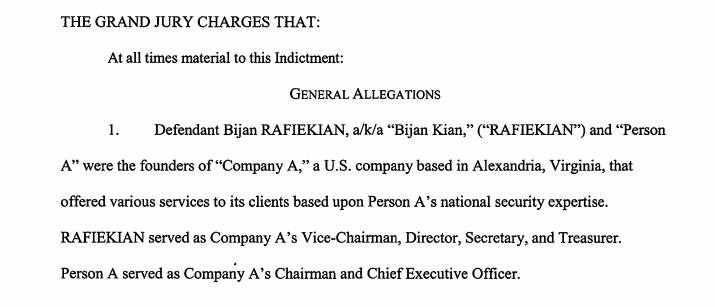
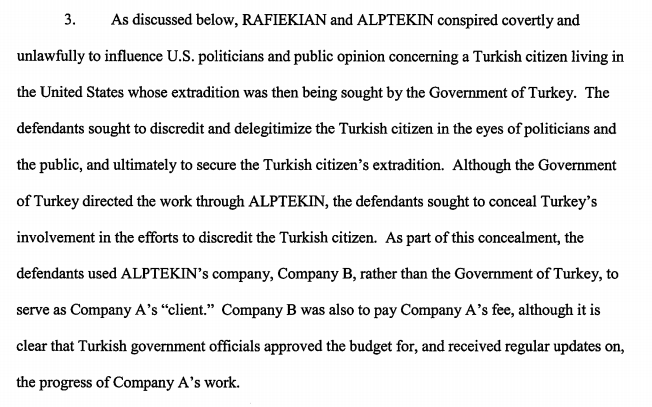

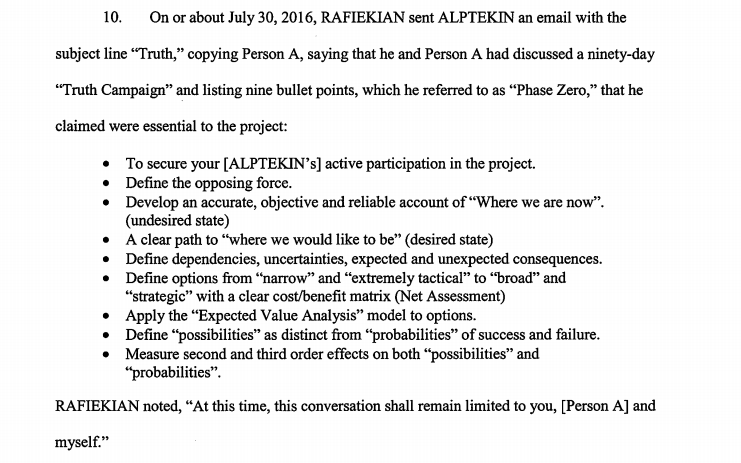



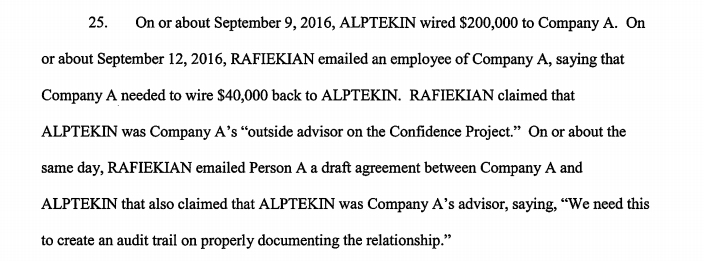
Since Flynn was not indicted along with them despite the extent of his role laid out in the indictments of the 2 associates, it would suggest that Flynn was out there singing like a nightingale about these 2 individuals. Though they don't really need much, if any, testimony on Flynn's part given that they all incriminated themselves at every step of the way in their email communications.Blew my mind when I was reminded that Nixon actually secretly recorded all the Watergate tapes.
It don't even be your own people, It be your own self. That's crazy.
The irony of this all is really just too much to bear.Since Flynn was not indicted along with them despite the extent of his role laid out in the indictments of the 2 associates, it would suggest that Flynn was out there singing like a nightingale about these 2 individuals. Though they don't really need much, if any, testimony on Flynn's part given that they all incriminated themselves at every step of the way in their email communications.
Mueller's sentencing memo on Flynn contained a fully blacked out page regarding an unrelated criminal investigation, which appears to have been the one that resulted in the 2 indictments yesterday.
Flynn's lawyers said in their sentencing memo that Flynn started cooperating almost immediately after the FBI interview and handed over troves of electronic communications.